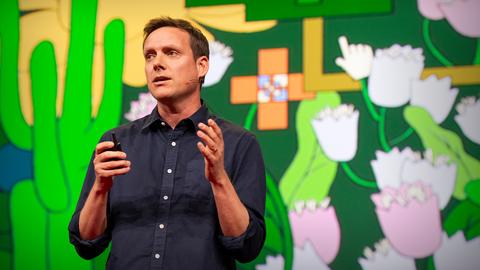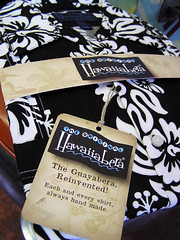
And negative people don’t.
Having moved from the UK and around the US and attending several (at least 8) different schools before starting high school here in Texas, I somehow developed a pretty decent BS detector. Whether it's crossing the threshold of a brand new classroom, party or a place of business, there's always a definite, palapable and inherent vibe based on the mix of folks in the room.
Always.
One of the best pieces of advice my mom ever gave me was this: Don't ever be afraid to be the first one to smile and say hello. This one simple act truly works like magic and starts the ever-powerful flow of the Positive Vibe. Think Brian Wilson.
Here's an excerpt from an awesome piece by Olivier Blanchard from his wicked smart Brand Builder blog:
Ever noticed how positive attitudes are infectious? You walk into a store, and everyone who works there is jazzed and happy to be there and energetic… and by the time you leave, you have completely adopted their mood?
Ever noticed that the opposite is also true: Walk into a business where everyone is negative or apathetic, and you find yourself feeling the same dread and negativity?
Sitting in Houston’s Toyota arena with thousands of the world’s most innovative Microsoft partners, I was reminded of the power that other people’s attitudes and moods have over our own - and remembered a post that Kathy Sierra shared many moons ago on her brilliant but now sadly defunct “Passionate Users” blog. It talked about happy vs. angry people, emotional contagion, and the role mirror neurons play in our involuntary tendency to be drawn into other people’s positive or negative attitudes. Very cool stuff, and particularly relevant to some of the discussions I have been involved with in the last few days with some of my international peers. I did some quick digging to find it so I could share it with you. Here are some of the highlights:
Mirror neurons and our innate tendency to pick up other people’s behaviors, good and bad.
There is now strong evidence to suggest that humans have the same type of “mirror neurons” found in monkeys. It’s what these neurons do that’s amazing–they activate in the same way when you’re watching someone else do something as they do when you’re doing it yourself!
This mirroring process/capability is thought to be behind our ability to empathize, but you can imagine the role these neurons have played in keeping us alive as a species. We learn from watching others. We learn from imitating (mirroring) others. The potential problem, though, is that these neurons go happily about their business of imitating others without our conscious intention.
Think about that…
Although the neuroscientific findings are new, your sports coach and your parents didn’t need to know the cause to recognize the effects:
“Choose your role models carefully.”
“Watching Michael Jordan will help you get better.”
“You’re hanging out with the wrong crowd; they’re a bad influence.”
“Don’t watch people doing it wrong… watch the experts!”
We’ve all experienced it. How often have you found yourself sliding into the accent of those around you? Spend a month in England and even a California valley girl sounds different. Spend a week in Texas and even a native New Yorker starts slowing down his speech. How often have you found yourself laughing, dressing, skiing like your closest friend?
Has someone ever observed that you and a close friend or significant other had similar mannerisms? When I was in junior high school, it was tough for people to tell my best friends and I apart on the phone–we all sounded so much alike that we could fool even our parents.
But the effect of our innate ability and need to imitate goes way past teenage phone tricks. Spend time with a nervous, anxious person and physiological monitoring would most likely show you mimicking the anxiety and nervousness, in ways that affect your brain and body in a concrete, measurable way.
Find yourself in a room full of pissed off people and feel the smile slide right off your face. Listen to people complaining endlessly about work, and you’ll find yourself starting to do the same. How many of us have been horrified to suddenly realize that we’ve spent the last half-hour caught up in a gossip session–despite our strong aversion to gossip? The behavior of others we’re around is nearly irresistible.
Keep the good vibes goin' and read the whole thing: Why positive people create positive brand experiences… and negative people don’t.
That's Right,
HMK
Thanks to Dappers for the cool candy shot.




























































Thanks for the props.
ReplyDeleteMy pleasure. Thanks for the awesome post.
ReplyDeleteHMK